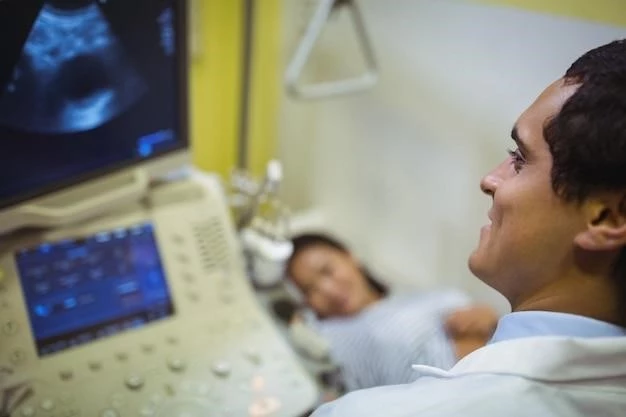Disease ⎻ Fetal Brain Disruption Sequence
Introduction
Fetal Brain Disruption Sequence is a rare congenital condition characterized by abnormal brain development during fetal development. This condition can result in a range of neurological impairments and developmental abnormalities. The disruption occurs in utero and can lead to severe complications.
Understanding the causes, symptoms, diagnosis, and management of Fetal Brain Disruption Sequence is crucial in providing appropriate care and support to affected individuals and their families. This article delves into the various aspects of this complex condition to shed light on its impact and the challenges it presents.
By exploring the intricacies of Fetal Brain Disruption Sequence, we aim to enhance awareness of this condition among healthcare professionals, researchers, and the general public. Through comprehensive information on the disease, its prognosis, and potential treatments, we strive to contribute to the knowledge and understanding of this rare disorder.
Causes
The exact causes of Fetal Brain Disruption Sequence are not fully understood, but it is believed to result from a complex interplay of genetic and environmental factors during early fetal development; In some cases, genetic mutations or chromosomal abnormalities may contribute to the condition.
Environmental factors such as maternal infections, exposure to toxins, or drug use during pregnancy can also play a role in the disruption of normal brain development in the fetus. Additionally, disruptions in blood flow to the developing brain or other intrauterine insults may lead to Fetal Brain Disruption Sequence.
Studies suggest that disruptions in the intricate process of neuronal migration or abnormal cell proliferation in the developing brain could be underlying mechanisms for this condition. While research continues to elucidate the precise causes, a multidisciplinary approach involving geneticists, neurologists, and maternal-fetal medicine specialists is vital for identifying potential risk factors and understanding the etiology of Fetal Brain Disruption Sequence.
Symptoms
The symptoms of Fetal Brain Disruption Sequence can vary widely depending on the extent and location of the brain abnormalities. Common symptoms may include microcephaly (abnormally small head size), intellectual disabilities, seizures, muscle stiffness or weakness, feeding difficulties, and vision or hearing impairments.
Individuals affected by this condition may exhibit developmental delays, such as delays in reaching milestones like sitting, crawling, or walking. Cognitive impairments, speech and language delays, and behavioral challenges are also observed in some cases.
Moreover, babies born with Fetal Brain Disruption Sequence may present with facial disfigurements, such as cleft lip or palate, as well as limb malformations or other physical abnormalities. It is essential for healthcare providers to carefully evaluate and monitor the symptoms to tailor treatment and support interventions based on the individual needs of the affected child.
Diagnosis
Diagnosing Fetal Brain Disruption Sequence typically involves a combination of prenatal imaging studies, genetic testing, and clinical evaluations. During routine prenatal ultrasounds, anomalies in the developing brain may be detected, prompting further investigation.
Advanced imaging techniques such as magnetic resonance imaging (MRI) can provide detailed insights into the structural abnormalities of the fetal brain, aiding in the diagnosis of Fetal Brain Disruption Sequence. Genetic testing, including chromosomal analysis and molecular tests, may be recommended to identify any underlying genetic causes.
After birth, a comprehensive physical examination and neurological assessment are essential to confirm the presence of characteristic features associated with the condition. Close monitoring of developmental milestones and ongoing evaluations by a multidisciplinary team of specialists are crucial for accurate diagnosis and appropriate management of Fetal Brain Disruption Sequence.
Complications and Rare Malformations
Fetal Brain Disruption Sequence can lead to a myriad of complications that significantly impact the affected individual’s quality of life. These can include severe cognitive impairments, lifelong neurological disabilities, and challenges in motor function and communication.
In addition to the common symptoms associated with the condition, rare malformations may also occur in some cases. These malformations could involve structural abnormalities in other organs or systems of the body, further complicating the clinical picture and necessitating specialized care.
Furthermore, individuals with Fetal Brain Disruption Sequence may be at increased risk of developing secondary health issues such as respiratory problems, gastrointestinal issues, or orthopedic concerns. Managing these complications requires a comprehensive and holistic approach that addresses the diverse needs of the patient.
It is essential for healthcare providers and caregivers to remain vigilant for any signs of complications or rare malformations in individuals diagnosed with Fetal Brain Disruption Sequence. Early intervention and proactive management strategies can help minimize the impact of these challenges and improve the overall well-being of affected individuals.
Management and Treatment
The management of Fetal Brain Disruption Sequence focuses on a multidisciplinary approach aimed at addressing the diverse needs of the affected individual. While there is no cure for the underlying brain abnormalities, treatment strategies are centered on symptom management, developmental support, and maximizing the individual’s quality of life.
Early intervention services, including physical therapy, occupational therapy, and speech therapy, are vital in promoting optimal development and enhancing functional abilities. Special education programs tailored to the unique learning requirements of individuals with Fetal Brain Disruption Sequence play a crucial role in nurturing their cognitive and social skills.
In some cases, surgical interventions may be necessary to address specific complications or rare malformations associated with the condition; Close monitoring by a team of healthcare professionals, including neurologists, genetic counselors, and developmental specialists, is essential in providing comprehensive care and support.
While the treatment approach may vary depending on the individual needs and severity of the condition, ongoing medical management and regular follow-up evaluations are essential components of caring for individuals with Fetal Brain Disruption Sequence. By implementing a holistic and individualized treatment plan, healthcare providers can optimize outcomes and enhance the quality of life for those affected by this complex condition.
Prognosis and Developmental Abnormalities
The prognosis for individuals with Fetal Brain Disruption Sequence varies depending on the severity of the brain abnormalities and associated complications. While some individuals may experience relatively mild symptoms and lead relatively independent lives with appropriate support, others may face more profound neurological impairments and developmental challenges.
Developmental abnormalities are a hallmark of Fetal Brain Disruption Sequence, impacting various aspects of physical, cognitive, and behavioral development. These abnormalities can manifest as delays in motor skills, adaptive behaviors, language acquisition, and social interactions, requiring tailored interventions and ongoing support.
Individuals with Fetal Brain Disruption Sequence may require lifelong care and assistance to navigate daily activities and achieve their full potential. The multidisciplinary team involved in their care plays a critical role in monitoring their progress, adjusting treatment strategies as needed, and addressing any emerging developmental issues.
By understanding the prognosis and developmental abnormalities associated with Fetal Brain Disruption Sequence, healthcare providers, educators, and caregivers can collaborate to provide comprehensive care that optimizes outcomes and enhances the quality of life for affected individuals. Through early intervention, specialized therapies, and personalized support, individuals with this condition can achieve milestones and thrive to the best of their abilities.
Conclusion
In conclusion, Fetal Brain Disruption Sequence is a complex and rare congenital condition characterized by abnormal brain development during fetal growth. This condition presents a wide spectrum of symptoms, complications, and developmental abnormalities that significantly impact the affected individuals and their families.

Despite the challenges posed by Fetal Brain Disruption Sequence, early diagnosis, multidisciplinary management, and tailored treatment approaches can make a difference in the lives of those affected. By raising awareness, advancing research, and enhancing support services, we can improve the outcomes and quality of life for individuals living with this condition.
As we continue to unravel the genetic, environmental, and developmental factors influencing Fetal Brain Disruption Sequence, it is imperative to prioritize early intervention, personalized care, and ongoing monitoring to address the diverse needs of affected individuals. By fostering collaboration among healthcare professionals, researchers, and support networks, we can provide holistic care that empowers individuals with Fetal Brain Disruption Sequence to thrive and reach their full potential.
